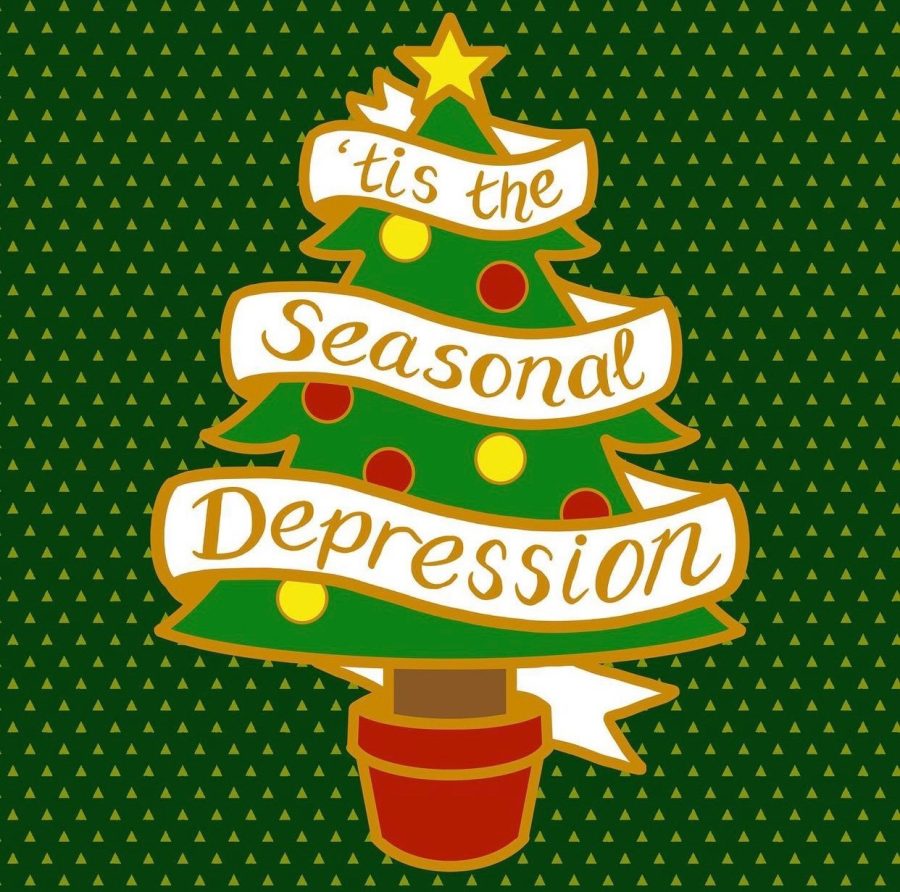Dealing with seasonal depression
As the days get shorter and nights get longer, Gaels get sadder.
December 9, 2021
If it feels like it’s harder to find joy in winter months, you’re not alone. Apparently, about thirty percent of young adults experience seasonal depression, also known as seasonal affective disorder (SAD).
Seasonal Affective Disorder (SAD) is a term made popular in recent years for those whose mental state declines as the weather gets colder, and days get shorter. This occurs at the same time each year. Although it can occur in spring or summer, it typically begins in late fall and lasts through the end of winter.
It can totally sap your energy, amp up your food cravings and leave you sad and moody for months on end. For those affected, it is estimated that symptoms of the seasonal affective disorder are present during stressful situations, which is not ideal for a college student.
We’re living through strange times and when our day-to-day routine starts feeling like a never-ending chore, it becomes easy to feel disheartened by life itself. It’s okay to feel hopeless, worthless and irritable sometimes. So, when you’re feeling a bit lost, here are a few tips to keep in mind.
Though it’s a hard discussion to have, there is commitment held by Iona’s community to find ways to bring people up.
Some students, such as senior Kennedy Blackwell, just wanted to give some simple advice -staying active will distract your mind from underlying thoughts, especially while listening to music, audio books, podcasts, etc.
“I think it’s hard to identify emotions, and we often don’t understand them,” Blackwell said. “My advice is to go outside and sit in the sun for a little bit. Go get some exercise, run, walk, do whatever you can to get your energy out. Depression is never just that simple, but I feel like this can help. From what I read sunlight is probably what you need. So, make an excuse to go outside when you’re feeling down.”
Senior McKenzie Ogden gets lost in the kitchen to help cope. The intricate task of finding ingredients, measuring and then cooking diverts your attention to look forward to eating something delicious.
“Make yourself breakfast,” Ogden said. “I know that’s kind of weird to say but it’s a way to say you accomplished something. Do it even if it takes a little bit longer. Try frying both sides of the toast when making a sandwich. This is my way of saying something simple. It may not be much but in the end it helps. Accomplishing little tasks definitely makes you feel better when going through the day.”
Lastly Dr. Kelso, chair of the Media and Strategic Communications department, wants to remind you that you always have someone to talk to.
“The best way to deal with such strong emotions is to seek help from a professional,” Dr. Kelso said. “For Iona’s students, we have the Counseling Center on campus. It’s a great resource for students when they want to talk to someone. You can always make an appointment online or go to them for help. I never want students to ever feel like they’re alone.”
In the end, there is no clear answer on why we feel this way but there are a few things you can do for yourself. For many, holidays are joyous, and for others they can be stressful. Just being aware of one’s own feelings is important.








